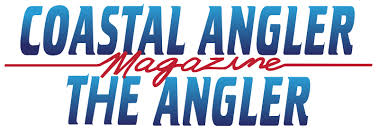
Wed Society is a wedding-industry franchise offering planning, education and networking events for professionals and couples, serving wedding vendors and engaged clients, and known for curated experiences, community-building and industry insights.
?
?

360 Tour Designs is a real-estate imagery and marketing franchise offering HD photos, 3D walkthroughs, aerial photography and videography services, serving real-estate professionals and businesses, and known for technology-driven marketing and franchise training support.
?
?

Real Producers is a real-estate media and publishing brand offering industry news, profiles and networking resources, serving top-selling agents and brokers, and known for connecting real-estate professionals and elevating industry success.
?
?

Coastal Angler is a media franchise offering localized fishing and boating magazines with print and digital editions, serving outdoor enthusiasts and regional advertisers, and known for territory-based editions, turnkey publishing systems, and multiple revenue streams from advertising, sponsorships, and events.
?
?

RedKnight is a marketing-services franchise offering lead generation, digital advertising, and AI-driven revenue operations, serving local businesses seeking performance marketing support, and known for data-driven campaign management, centralized technology platforms, and recurring retainers that help clients scale customer acquisition efficiently.
?
?

HerLife Magazine is a media and publishing franchise offering local women’s lifestyle magazines featuring fashion, business, and community stories, serving female readers and advertisers, and known for turnkey publishing systems, community-focused content, and multiple print, digital, and event-driven revenue streams.
?
?

Locals Love Us is a community advertising franchise offering neighborhood business rankings, print guides, and digital directories, serving local merchants and residents, and known for voter-driven “best of” lists that boost credibility, visibility, and measurable marketing results.
?
?

Network Lead Exchange is a business networking franchise offering a proprietary online platform and chapter-based lead groups, serving entrepreneurs and professionals seeking referrals, and known for organized, industry-exclusive chapters that reward members with commissions for closed referral business.
?
?

TapInto is a content-marketing and digital-franchise service offering hyper-local news websites under franchisee ownership, serving local business advertisers and community readers, and known for turnkey digital platform, recurring ad revenue and scalable model.
?
?

yorCMO is a fractional marketing franchise offering outsourced CMO services, serving small to mid-sized businesses, and known for its proven process, back-end support, and rapid launch for marketing leaders.
?
?